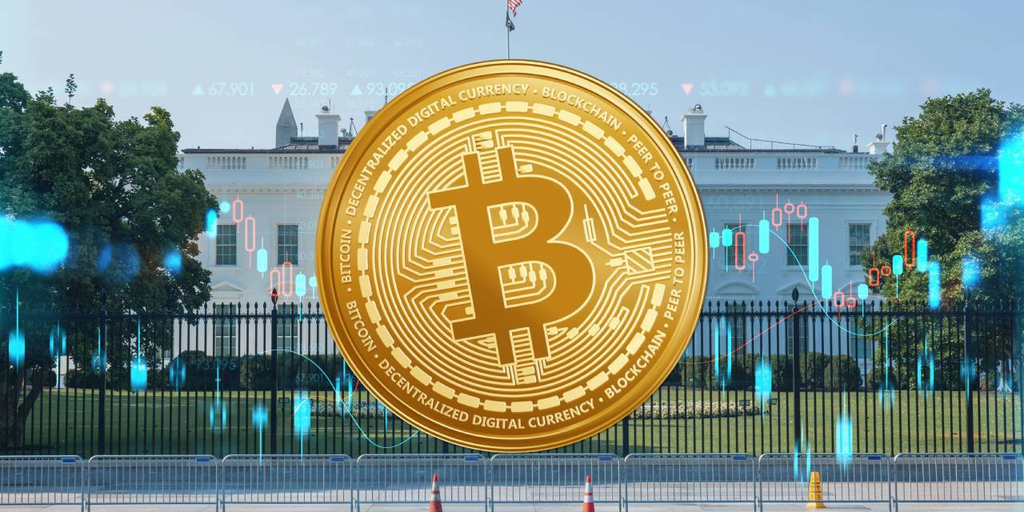Long Reads
A Song Man and a Law Professor Walk Into the SEC—And Try to Take Down Its NFT Agenda
Published
5 months agoon
By
admin

Five years ago, Brian Frye set an elaborate trap. Now the law professor is teaming up with a singer-songwriter to finally spring it on the SEC in a novel lawsuit—and in the process, prevent the regulator from ever coming after NFT art projects again.
Earlier this week, Frye and musician Jonathan Mann filed a federal lawsuit against the U.S. Securities and Exchange Commission that seeks to finally force the agency to articulate its position on the legal status of NFTs. Over and again, the SEC has sued cherry-picked NFT projects it says qualify as unregistered securities—but never once has the regulator defined what types of NFT projects are legal and which are not, casting a chill over the nascent industry.
The offbeat saga of this week’s lawsuit begins in 2019, when Frye, an expert in securities law and a fan of novel technologies, minted an NFT of a letter he sent to the SEC in which he declared his art project to constitute an illegal, unregistered security. If the conceptual art project wasn’t a security, Frye challenged the agency, then it needed to say so.
The SEC never responded to Frye—not then, and not after several more self-incriminating correspondences from the professor. But in due time, the agency began vigorously pursuing, and suing, NFT projects.
Last September, when the regulator came after actress Mila Kunis’ NFT-based cartoon series Stoner Cats, many artists who depend on revenue from NFT sales became concerned. Jonathan Mann, a musician who has written a new song every day since 2009, was one such artist. But he wasn’t just concerned—he was outraged.
“Any time I talk to the Stoner Cats people, or other people who have been affected [by the SEC], steam comes out of my ears,” Mann, better known as “Song A Day Mann,” told Decrypt. “I physically feel angry.”
Stoner Cats, an animated web series developed by Mila Kunis that featured the vocal talents of several A-list actors and Ethereum creator Vitalik Buterin, sold NFT passes required to view the program. Stoner Cats’ creators ultimately reached a $1 million settlement with the SEC without admitting wrongdoing, but the suit all-but killed the project, as well as another NFT-powered series backed by Kunis.
The same day as the Stoner Cats settlement, Mann posted a new tune entitled “This Song is A Security.” (He’s a quick writer.) Mann resolved at that moment to fight back against the SEC, and defend his right—plus the rights of other artists like him—to earn revenue through the sale of NFTs. That would involve voluntarily poking his head out of the ground and challenging the agency head-on, despite the fact that the Commission hadn’t sued him yet. But Mann felt like he had no other choice.
“No one wants to be under the eye of the SEC,” he said. “But I feel like our cause is so righteous, so clear cut to me, that it seemed like a no-brainer.”
Mann soon connected with a legal team deeply rooted in the cryptoverse that liked the idea of forcing the SEC’s hand regarding its NFT policies with a preemptive lawsuit. They just needed another plaintiff. Frye, who’d practically been salivating for such an opportunity for half a decade, was a natural fit.
“In the past, the SEC has always been able to choose its own defendants,” Frye told Decrypt. “So they went after people like Stoner Cats, because they knew they could paint Stoner Cats in a bad light. They knew they could bully them into settling.”
But now, Frye and Mann are drawing the battle lines. In the lawsuit filed against the SEC in Louisiana earlier this week, they challenged the SEC’s standing to regulate their NFT-backed artworks as securities, and demanded the agency declare that their respective art projects do not constitute illegally unregistered securities offerings.
I don’t think they want to say the quiet part out loud, which is: ‘We can regulate whatever the fuck we want.’
Mann even commemorated the occasion with a new song (mintable as an NFT, of course) titled “I’m Suing the SEC.”
“Like, I didn’t grow up with a distant dream… of someday suing a government agency,” the upbeat anthem goes. “But there’s this rogue regulator who’s been up to no good… Doing his very best to try and mess with my livelihood.”
Fundamentally, Frye believes, there is a gaping logical hole in the SEC’s approach to NFTs. For decades, as Frye has long emphasized, the regulator has refrained from regulating the art market, even pieces routinely bought as stores of value, and sold in series of identical or near-identical derivatives.
So what is it about putting such art pieces on-chain that would automatically make them securities? And why would only some NFT projects fall under the SEC’s authority, then, but not others?
“I don’t think they want to say the quiet part out loud, which is: ‘We can regulate whatever the fuck we want,’” Frye said.
The law professor is thus quite excited at the prospect of finally forcing the SEC to explain the contours of its NFT policies in federal court.
“I think that’s going to be a really difficult thing for them to do,” he said.
If this week’s lawsuit represents a thrilling and long-overdue intellectual battle with the American state to Frye, its meaning is somewhat more existential to songwriter Mann.
“I want to know, for myself and for everyone that I know trying to make a living by making NFTs, that what we’re doing is not going to draw Sauron’s eye,” Mann said, name checking the all-seeing, all-destroying, all-powerful villain of The Lord of the Rings fame.
The lawsuit has no guarantee of offering some conclusive end to the NFT regulation question, both readily admit. That may only come with concrete legislation or a judgment by the Supreme Court.
Regardless, the professor and the musician are both feeling catharsis—though for slightly different reasons—at the prospect of finally putting the SEC’s seemingly contradictory stance on NFTs on trial.
“This is a really deep, profound, existential, ontological problem that has to be resolved one way or another,” Frye said. “I’m not saying I know what the right answer is. I’m just saying there has to be an answer.”
Daily Debrief Newsletter
Start every day with the top news stories right now, plus original features, a podcast, videos and more.
Source link
You may like


Flockerz presale enters final stage with 28 days remaining


What Happens to Ethereum Price If Bitcoin Crashes to $80,000?


XRP Has Most Bullish-Looking Chart in Entire Crypto Space, According to Analyst – Here’s Why


Coinbase CLO shares data on crypto hedge funds debanking, demands for answers


Here’s Why Dogecoin Price May Never Hit $50 or $100 Mark


Buying this token under $0.05 could be like buying Solana at $0.50
Long Reads
From DMM Bitcoin to the US Government: Largest Crypto Exploits and Hacks of 2024
Published
23 hours agoon
December 25, 2024By
admin

Hackers have grown more sophisticated and continue to rake in billions of dollars from crypto exploits.
The good news? There isn’t any—2024 has officially surpassed last year’s totals for stolen funds, with months of hacks piling on to an already record-breaking year.
By Q3 2024, blockchain intelligence firm TRM Labs reported that over $2.2 billion had been stolen in crypto hacks—exceeding the $1.8 billion lost in all of 2023.
Now, as the year comes to a close, the total continues to climb. Analysis reveals that thefts weren’t limited to the experimental world of decentralized finance, or DeFi; centralized crypto exchanges were also prime targets.
Here are the biggest crypto heists of 2024.
DMM Bitcoin’s $308 million
Japanese crypto exchange DMM Bitcoin lost over 4,500 BTC—worth $308 million at the time—to hackers back in May.
It’s unclear how hackers managed to steal from the exchange, but TRM Labs said that stolen private keys were a plausible explanation.
The company is still shutting down and transferring customer accounts to another exchange, SBI VC Trade, which is taking over its assets.
PlayDapp’s $290 million
Hackers targeted the crypto gaming platform PlayDapp twice in February by exploiting a private key vulnerability. They made off with $290 million in PLA tokens across the two incidents.
The attackers also ignored a $1 million white hat reward to return the stolen funds. To this day, the funds are still missing.
WazirX’s $235 million
Indian crypto exchange WazirX was also targeted in June, with hackers running away with close to $235 million.
WazirX suspended all withdrawals, leaving users unable to access their funds after the hack. Elliptic said that the attack was linked to North Korea.
The exchange’s parent company, Zettai Pte Ltd, secured a four-month moratorium from the Singapore High Court in August in a bid to get its finances in order.
Things took a weird twist in October when the co-founder of rival exchange CoinSwitch accused WazirX of transferring $75 million worth of user funds to top exchanges Bybit and KuCoin in the wake of the attack.
WazirX has since said that it’s in the process of “rebalancing tokens,” and clients will soon be informed on the next steps to repay creditors.
Ripple co-founder Chris Larsen’s $112.5 million
Hackers targeted Ripple co-founder and Executive Chairman Chris Larsen’s XRP stash on January 30. The crypto entrepreneur wrote on X that there had been “unauthorized access to a few of my personal XRP accounts,” but reassured people that Ripple itself hadn’t been targeted.
Still, it was a hefty attack, and blockchain sleuth ZachXBT said that hackers made away with about 213 million XRP—$112.5 million at the time—before laundering it through exchanges. Efforts to recover the stolen assets have been unsuccessful.
Orbit Chain’s $80 million
The year began with a significant DeFi breach, as hackers drained over $80 million from the cross-chain bridge project Orbit Chain on January 1. Criminals took off with Ethereum and the stablecoin DAI in the exploit—and then fell silent.
Months later, millions of dollars of the stolen crypto was moved to coin mixer Tornado Cash. Other than a January statement apologizing for the exploit, the team behind the project has since given little update on what happened—or how it would retrieve the stolen funds.
BtcTurk’s $54 million
On June 22, hackers targeted the Turkish crypto exchange BtCTurk—which caters to the country’s budding market. Most of the funds were in the form of Avalanche (AVAX), the 12th-largest digital asset by market capitalization.
The exchange reassured users that most funds—kept in cold storage—were safe. Meanwhile, a day after the hack, Binance CEO Richard Teng said his exchange had frozen $5.3 million in stolen funds to assist BtcTurk’s efforts.
Radiant Capital’s $50 million
In October, Hackers hit DeFi project Radiant Capital in “one of the most sophisticated hacks ever recorded in DeFi,” making away with $50 million in tokens at the time.
The breach happened after a Radiant developer received a Telegram message from what appeared to be a former contractor, the protocol said. The message contained a PDF, which was then used to deliver malware and subsequently gain control of several private keys, allowing hackers to steal USDT, USDC, and ARB tokens.
Radiant Capital, which allows users to earn interest and borrow crypto, has since said that North Korean hackers were behind the attack.
U.S. government’s $20 million
Hackers even targeted the Feds this year with over $20 million worth of stablecoins and Ethereum disappearing in October from a government wallet containing funds seized from criminals.
The crypto in question was tied to a previous 2016 hack of the Bitfinex exchange. Hackers sent the coins and tokens to a new address, prompting pseudonymous blockchain sleuth ZachXBT to say it was likely a theft.
Then, the next day, close to $19.3 million worth of the pinched funds were returned to the wallet, data collected by Arkham Intelligence shows. It still isn’t clear what happened to the rest of the stolen crypto—or why hackers returned it in the first place.
Edited by Sebastian Sinclair
Daily Debrief Newsletter
Start every day with the top news stories right now, plus original features, a podcast, videos and more.
Source link
Long Reads
Bitcoin Is Flying High—These Countries Are Considering a National Reserve
Published
4 weeks agoon
November 30, 2024By
admin

Some countries are mulling a national Bitcoin reserve amid a historic market run-up that has pushed the world’s largest cryptocurrency to new heights in recent weeks.
United States President-elect Donald Trump and his allies have repeatedly thrown their support behind a bill to stock the Federal Reserve with the asset, and will soon be in position to potentially make that a reality.
Government officials in Brazil have also put forth legislation to realize that possibility, while politicians in Poland and Russia have endorsed the idea of adding the digital currency to their nations’ balance sheets.
El Salvador led the charge on this front, making Bitcoin legal tender while gradually amassing BTC for its own reserve starting in 2021—and now President Bukele is taking a victory lap as the asset surges towards $100,000.
While it’s unclear whether other countries will actually stockpile Bitcoin anytime soon, one thing is obvious: Interest in holding the token as a reserve asset has reached a fever pitch. Here’s who is considering a national Bitcoin reserve.
United States
Several U.S. lawmakers have made pushes to establish a strategic Bitcoin reserve.
Senator Cynthia Lummis of Wyoming last spring unveiled a bill called the “Bitcoin Act” that calls for the U.S. to acquire as much as 200,000 Bitcoin annually over a five-year period, or up 5% of the token’s total supply.
The Bitcoin would be kept in a “decentralized network of secure Bitcoin vaults operated by the United States Department of Treasury,” with token acquisitions being accomplished through a diversification of existing Federal Reserve funds such as bonds, loans and gold.
President-elect Donald Trump similarly endorsed a “strategic Bitcoin stockpile” last July at BTC 2024 in Nashville—one of many such crypto-related promises that he’ll be expected to honor once in office.
“It will be the policy of my administration…to keep 100% of all the Bitcoin the U.S. government currently holds or acquires into the future,” Trump said at the event.
Brazil
Brazil’s government has proposed a bill that would green-light a national Bitcoin reserve.
The Sovereign Strategic Reserve of Bitcoins (RESBit) would account for 5% of Brazil’s international reserves, according to the proposed legislation, filed on November 25. It aims to diversify the Brazilian Treasury’s assets.
Incorporating Bitcoin into the Treasury “will reduce Brazil’s exposure to exchange rate fluctuations and geopolitical risks, increasing economic resilience,” Federal Deputy Eros Biondini said in the proposed bill.
Under the proposal, Brazil’s Central Bank would manage the Bitcoin reserve in partnership with the Ministry of Finance. Those funds would be used to back Brazil’s CBDC, called Drex. The Bitcoin would be stored in cold wallets, according to the bill.
Poland
Polish presidential candidate Sławomir Mentzen has advocated for the creation of a strategic Bitcoin reserve, as well as for the passing of crypto-friendly laws and regulations in Poland.
“If I become the President of Poland, our country will become a cryptocurrency haven, with very friendly regulations, low taxes, and a supportive approach from banks and regulators,” Mentzen said in a recent post on X (formerly known as Twitter).
“It is high time Polish politicians also look to the future,” the politician said in another X post.
The far-right nationalist candidate is running third in the polls in the Eastern European country. It is unclear if Mentzen’s political opponents also support the creation of a strategic Bitcoin reserve.
Russia
Several Russian legislators this month have suggested creating a “stash of” crypto in “the state Treasury,” despite opposition from Russian State Duma Committee Chairman Anatoly Aksakov.
They also succeeded in passing legislation legalizing crypto mining and the use of digital assets for international payments this fall.
Russia’s recent change of tune on crypto suggests the Eastern European country could revisit the issue of a strategic Bitcoin reserve, which at least one of its top officials has previously expressed support for.
In a 2021 interview with Russian news outlet Interfax, Deputy Minister Foreign Affairs Minister Alexander Pankin expressed an openness to partially replacing the country’s U.S. dollar-backed reserves and trade settlements with other currencies, including cryptocurrencies.
Russia could replace U.S. dollars with various national currencies as well as “in the future, probably…some kind of digital assets,” Pankin told the outlet.
Edited by Andrew Hayward and Sebastian Sinclair
Daily Debrief Newsletter
Start every day with the top news stories right now, plus original features, a podcast, videos and more.
Source link
Long Reads
Is Crypto to Blame for Telegram CEO Pavel Durov’s Arrest?
Published
4 months agoon
September 1, 2024By
admin

In the wake of Telegram CEO Pavel Durov’s bombshell arrest in France last weekend and subsequent criminal indictment, much is still uncertain—particularly, how the high-stakes drama will impact Telegram’s massive crypto ambitions.
This year, Telegram became perhaps the most prominent company to ever jump with both feet into the cryptosphere. The dominant messaging service encouraged the proliferation of an ecosystem of on-chain, in-app games and services powered by Telegram’s blockchain of choice, The Open Network (TON). Those so-called “mini apps” exploded in popularity this spring, largely thanks to their ability to earn users crypto rewards via token airdrops.
Momentum from mini app activity catapulted Telegram to a record 950 million monthly active users in July, and Telegram has directly embraced TON by using it to pay channel operators a share of advertising revenue, along with launching an in-app currency called Stars that’s linked with TON.
The company’s new path appeared so limitless that some TON developers prophesied the app might soon ride its on-chain mini app model to become the West’s version of China’s “everything app,” WeChat.
But crypto is also, notoriously, a legally risky sandbox to play in. So now that Telegram appears to have awoken the regulatory beast, could the company’s crypto future be in jeopardy?
“How big do they want to get?”
The charges filed against Telegram CEO Pavel Durov on Wednesday do not mention cryptocurrency whatsoever. They focus instead on content related to illegal topics like child pornography and drug sales that Durov allegedly allowed to proliferate on his platform.
But the timing of the indictment—in the midst of Telegram’s aggressive push to make crypto-backed financial services a central offering—speaks loudly, according to Seth Goertz, a former U.S. Attorney specializing in cryptocurrency and cybersecurity.
“The more they go down that road, the more they’re inviting scrutiny,” Goertz told Decrypt of Telegram’s finance and commerce-related ambitions. “How big do they want to get?”
The former prosecutor specifically pointed to the integration, in April, of the popular stablecoin Tether (USDT) with both TON and the Wallet app on Telegram. While the move was a massive boon for Telegram’s mini apps, allowing users to transact in a dollar-backed currency that doesn’t fluctuate nearly as much as TON’s native token, the stablecoin also has a long track record of fueling illicit activity due to that same attractiveness.
“If governments are seeing large amounts of Tether being moved through Telegram, it is going to attract tremendous scrutiny, for sure,” Goertz said. “The dollar is a powerful thing.”
Decrypt reached out to numerous TON developers and creators of Telegram mini apps for this story regarding their views on Durov’s arrest, and how it might impact the future of Telegram’s crypto-related ambitions. All declined comment.
Telegram did not respond to multiple requests for comment on this story.
Crypto tech vs. crypto attitude
Not everyone is adamant that the factors that compelled the French government to arrest Durov have anything to do with crypto or any other technology peddled by Telegram—potentially indicating that the company’s “everything app” ambitions may not be the center of the story.
Despite this week’s uproar on Crypto Twitter—which framed Durov’s arrest as an assault on user rights to privacy—Ben Rubin, the founder of the once-trendy, since-shuttered video chat app Houseparty, believes Telegram didn’t ruffle many feathers with its actual privacy features.
In reality, the app is actually less secure by default than other popular messaging platforms with automatic end-to-end encryption like Signal, iMessage, and even WhatsApp.
Crucially, though, Telegram’s leadership is notoriously standoffish when it comes to dealing with government entities. This created a perfect storm, in Rubin’s opinion, with Telegram sitting on lots of vulnerable data about its users, but refusing to hand it over.
“My intuition is that this has nothing to do with crypto,” Rubin told Decrypt. “When a platform not only doesn’t protect user privacy—by not introducing end-to-end encryption—but also pisses off the regulators, you get the situation that you’re in now.”
In that sense, Telegram and Durov may now be in trouble less due to crypto tech, and more due to embodying the same kind of anti-establishment attitude that has fueled the crypto industry and made Durov something of a free speech icon.
When French prosecutors announced charges against Durov on Wednesday, they specifically underscored how Telegram’s failure to communicate whatsoever with government entities was a crucial factor that aggravated the entire situation.
“This indictment is the result of a thorough investigation into Telegram’s near-total lack of response to judicial requests, which has been a concern for multiple law enforcement agencies across Europe,” prosecutor Laure Beccuau said.
Rubin, who is currently building Towns, a permissionless app for group chats that runs on Ethereum layer-2 network Base, said such conflict could be easily avoided if Telegram adopted an inverse to its current approach: encrypting all user messages automatically, and letting law enforcement in—when necessary—to parse through other more extraneous data.
“This is how you actually find a good balance where the regulators don’t have too much access to things, and they cannot abuse the power,” Rubin said.
“But they actually need to do work,” he added of regulators. “And I think we will be in trouble if, for anyone who builds online communication, regulators come and ask to cooperate and we all give them the finger. That’s not going to work out.”
In recent days, Durov’s arrest has become a rallying cry for tech leaders ranging from Elon Musk to prominent crypto investor and former Coinbase CTO Balaji Srinivasan.
Crypto advocates in particular have rushed to the Telegram founder’s defense, framing his prosecution as an existential attack on the foundational pillars of the decentralization movement.
But was it actually groundbreaking crypto tech that so irked the French government in Durov’s case? Or rather, his defiant and dogmatic personification of the crypto persona?
Edited by Andrew Hayward
Daily Debrief Newsletter
Start every day with the top news stories right now, plus original features, a podcast, videos and more.
Source link

Flockerz presale enters final stage with 28 days remaining

What Happens to Ethereum Price If Bitcoin Crashes to $80,000?

XRP Has Most Bullish-Looking Chart in Entire Crypto Space, According to Analyst – Here’s Why

Coinbase CLO shares data on crypto hedge funds debanking, demands for answers

Here’s Why Dogecoin Price May Never Hit $50 or $100 Mark

Buying this token under $0.05 could be like buying Solana at $0.50

7 Massive Games From 2024 Worth Playing Over the Holiday Break

WhiteBIT Adds Pepe, Bonk, Sui & 57 New Crypto to Expand Collateral Options to 80

5 game-changing altcoins for December/January

BTC Hits $99K, BGB Jumps 26%, MOVE Surges 15%

Floki DAO Floats Proposal Ahead of Possible European ETP, Second After Dogecoin

Polygon’s presale token captures XRP and Cardano investors’ attention

AVAX Price Eyes Rally As Avalanche Founder Draws Parallel To Bitcoin

Possible Deep Correction Could Push Cardano Price To $0.43, Here’s How

Crypto whales stockpile these 3 altcoins before the next bull run
182267361726451435

Why Did Trump Change His Mind on Bitcoin?

Top Crypto News Headlines of The Week

New U.S. president must bring clarity to crypto regulation, analyst says

Will XRP Price Defend $0.5 Support If SEC Decides to Appeal?

Bitcoin Open-Source Development Takes The Stage In Nashville

Ethereum, Solana touch key levels as Bitcoin spikes

Bitcoin 20% Surge In 3 Weeks Teases Record-Breaking Potential

Ethereum Crash A Buying Opportunity? This Whale Thinks So

Shiba Inu Price Slips 4% as 3500% Burn Rate Surge Fails to Halt Correction

Washington financial watchdog warns of scam involving fake crypto ‘professors’

‘Hamster Kombat’ Airdrop Delayed as Pre-Market Trading for Telegram Game Expands

Citigroup Executive Steps Down To Explore Crypto
Mostbet Güvenilir Mi – Casino Bonus 2024

NoOnes Bitcoin Philosophy: Everyone Eats
Trending

 3 months ago
3 months ago182267361726451435

 Donald Trump5 months ago
Donald Trump5 months agoWhy Did Trump Change His Mind on Bitcoin?

 24/7 Cryptocurrency News4 months ago
24/7 Cryptocurrency News4 months agoTop Crypto News Headlines of The Week

 News4 months ago
News4 months agoNew U.S. president must bring clarity to crypto regulation, analyst says

 Price analysis5 months ago
Price analysis5 months agoWill XRP Price Defend $0.5 Support If SEC Decides to Appeal?

 Opinion5 months ago
Opinion5 months agoBitcoin Open-Source Development Takes The Stage In Nashville

 Bitcoin5 months ago
Bitcoin5 months agoEthereum, Solana touch key levels as Bitcoin spikes

 Bitcoin5 months ago
Bitcoin5 months agoBitcoin 20% Surge In 3 Weeks Teases Record-Breaking Potential


